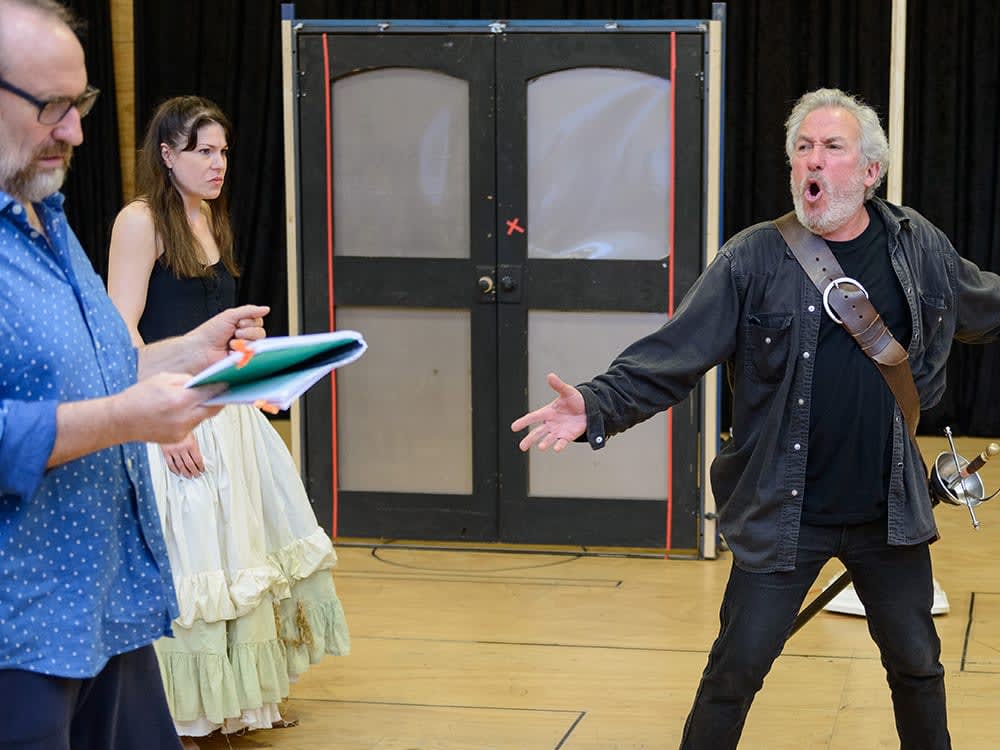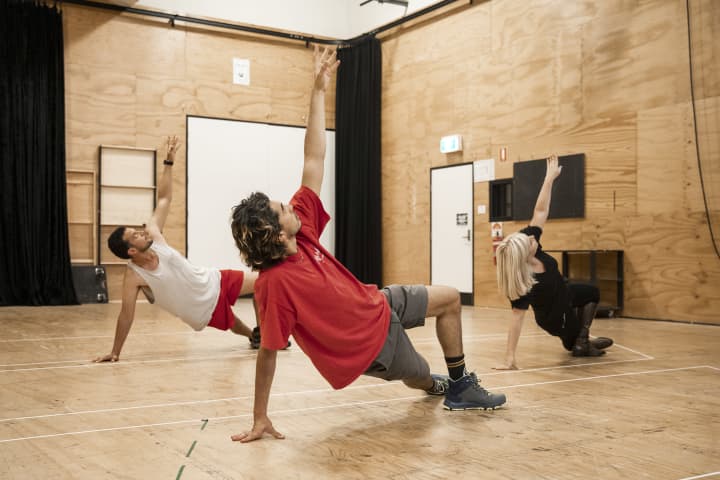Speech pathologist Dr Debbie Phyland is the owner of Voice Medicine Australia, and in her spare time she’s a music theatre singer and performer. For over 20 years she’s combined her professional and personal passions as a voice consultant on MTC’s productions, as well as working with touring productions including Aladdin, War Horse, King Kong, Les Misérables, Kinky Boots and Six: The Musical.
(She’s even won a Green Room Award for her contribution to the Melbourne Stage.)
‘As a speech pathologist and performer, I have always been passionate about both the health sciences and the performing arts,’ she says, ‘so I suppose it was a natural fit for me to merge the two.’
Phyland first began working with Melbourne Theatre Company 23 years ago, when a performer sought help for a vocal concern; this evolved into a formal appointment in 1998 as our speech pathologist/voice consultant and eventually to the establishment of what was then coined The MTC Injury Prevention Program. ‘The concept of prehabilitation in performance medicine was relatively novel then,’ she explains, ‘and I regularly give a shout-out to MTC – both the production and creative teams of the time – for being so forward-thinking and holistic in both risk management and duty of care.’
Today, she is still aiming to reduce the risk of vocal injuries in performers but her work now also has a greater focus on the general improvement and maintenance of all-round vocal fitness and capacity. ‘The performer should not ever need to think of the ‘how’ of their voice in performance but trust that the mechanism is robust and truly connected. It is not my role to directly influence the creative process (that is for the performer, vocal coach, director and other creatives) but to help the performer to voice smarter, not harder, and thereby meet the desired vocal output and vocal demands consistently.’

Richard Piper (with Colin Hay and Tamsin Carroll) in rehearsal for Twelfth Night. Photo: Deryk McAlpin
Vocal athletes
These vocal demands can be considerable. As Phyland notes, performers are ‘vocal athletes’ who are required ‘to use a variety of vocal postures, to readily access and control extremes in dynamics, agility and endurance, and to implement these vocal activities while simultaneously telling a story.’
The vocal demands can also be sustained. A lengthy monologue, for instance, can be like ‘running a vocal marathon’ whereas scenes that require fighting or shouting, heightened emotional states or alternating character voices may be more like a sprint. ‘To perform as such for an average eight shows per week, often for months, requires great physical and psychological fitness and resilience,’ she says, while also noting that this is the norm for the performer ‘and yet another reason why we value each performance’.
‘There is some great emerging research that using your voice healthily – especially in vocal play and song – can improve your immunity and overall sense of wellbeing.’
In order to get performers into vocal shape, Phyland typically begins early in rehearsals, sitting in on the first read to listen to the actors’ baseline voices and determine their ‘vocal profile’. If required, she may also run a cast workshop and devise a vocal exercise program, record warm-ups or offer one-on-one work. ‘There are specific strategies and exercises that can build vocal stamina and improve voice quality,’ she says. ‘By pre-emptively optimising their vocal health (physical and psychological), the artists are setting themselves up for vocal success and longevity.’
From there, every day is different. ‘I’m not sure that I have an average work day but I do love the variety – whether it involves my voice consultancy with MTC, with a music theatre production (most recently Billy Elliot the Musical) or my clinical speech pathology work in hospitals and private practice.’ She might be assessing a teacher who has lost their voice one moment, then watching a rehearsal the next, ‘and trying to remember to listen intently to the voices rather than lose myself in the performance’.
Use it or lose it
Looking after our voices isn’t just important for performers, though. Everybody can benefit from some vocal TLC. As Phyland notes, ‘if you don’t use it, you lose it.’ Elaborating, she says ‘we can all benefit from a regular vocal work-out not just to maintain or build up our voice but also to recover from vocal overload and reset our voices. Interestingly, there is also some great emerging research that using your voice healthily – especially in vocal play and song – can improve your immunity and overall sense of wellbeing.’
To help us out, Phyland has provided some exercises in the below video. If you’re spending a lot of time on conference calls or have an upcoming presentation to give – or even if you haven’t been using your voice much lately – these tips might help.
Enjoy, and remember: ‘the better you voice, the longer you are able to voice and the better your general wellbeing (and vice versa)!’
Published on 1 July 2020





